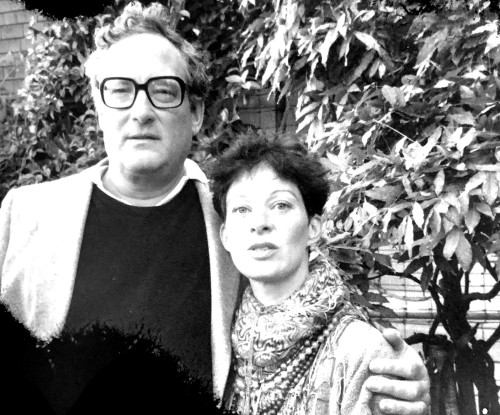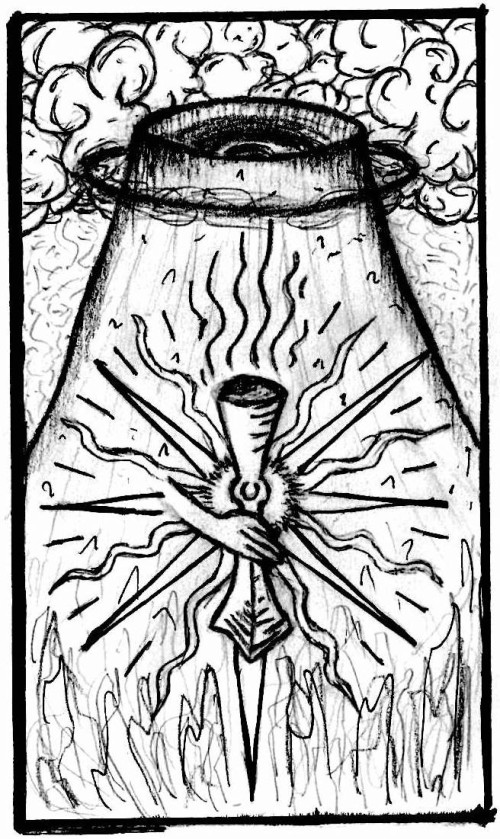Choi Seungja’s poems stare straight into the shadows rimming life’s spiral, sparking cigarette after cigarette—inhale > exhale > acidic wheeze & repeat until the body sinks first from daydream, then material reality, & finally, into the all enveloping grasses, home to worm & bone. The poems in Phone Bells Keep Ringing for Me (Action Books)—deftly translated by Won-Chung Kim & Cathy Park Hong, retaining every sharp edge & washed out vision—unveil a poet obsessed with fingering through the despair of her solitude, anticipating the rot that both awaits & reanimates us. People recoil at the matter that matters most, present just below the surface & waiting for the perfect storm to summon skinside. Not Choi, who through three decades of poems becomes an oracle of bile, shit, spit, ooze, piss, puss. Her verse transforms her own loneliness, & ours—we become as a worthless dog alongside her, licking scraps from bone in the pit of the world.
“Already I was nothing: / mold formed on stale bread, / trail of piss stains on the wall, / a maggot-covered corpse / a thousand years old.” Feels that way sometimes, & from these opening lines Choi submerges the reader in a menagerie of cut glass, moldy clouds, peeling rooms, scuzzy streets free of friends. A human, Choi reminds us, is an animal, subject to cycles of birth > grandiosity > failure > decay. No season is spared. Autumn catches syphilis & the poem delivers it straight to your brain, vis-à-vis the act of reading.
Forms come & go, dissolve into language, earth, ether. In the tedium of time’s passage (our earth-bound fate, prone as we are to failure & disappointment in relation to a society’s demands for productivity), we wait & want after a wholeness that’s nebulous at best. Choi announces a nothingness made resonant in language—language that likewise animates rot. Is the “I,” the “we,” the “they” just a rumor let loose by tongues, revised & maintained unto darkness through words?
Doubles haunt our fraying visions & trajectories. No amount of misery or joie de vivre will avert any self from destiny—a grave of nouns. Human life is haunted life, full of sun & smirking mirth—“nicotine congealing in alcohol / like syphilis germs flowing through veins, / like death gripping life.”
Choi’s lines oscillate from vivid description of the putrefaction & loneliness at the center of being to curt observations, leaving the eyes papercut:
To not be lonely,
I eat a lot.
To not be in pain,
I have a little drink.
To not dream,
I swallow sleeping pills.
Finally, I turn off
the switch to my brain.
—from “To Not Be Lonely”
Living well, which is to say, with a numbing sense of joy & achievement, requires of us an indulgence rendering life slightly slanted, a peripatetic danse macabre where the dead are invisible while battering us with wind.
Thus with Choi Seungja. Born into an authoritarian South Korea—a country ruled first on Confucian ethics & later, gross capital—in the early fifties, Choi became one of the most important feminist writers of her generation, railing against roles (what i’ve called desires) the state foisted upon her. What is free will? What value can possibly come from a childless, unmarried woman poet in a world such as this? Choi answers, half in a dream of death throws, with a fluency of bile, a smearing of shit, an endless corridor both haunted & drained of time & love.
Time moves mumly, “the hot secret codes of these days…in which death is followed by another death.” Yet there are moments of reaching, fleeting love & animal embrace, clouds shifting in shape to puncture ache. In poems like “Release,” we encounter our doubles, stranded in infinities of corners that, while casting large shadows, might also offer up their own chaotic becomings. For the poem to exist, there must remain a sweetness, however ephemeral, sustaining the speaker before she’s devoured by night.
“Hey, who is that over there / who waits at my door / throughout my life. / Now at last I know you aren’t my enemy, / come inside whenever you want.”
Choi invites us beyond the truncation of her poems (“short as a shriek”) into the land of her long longings: “The age for lyric is over” she writes, “and only the age for / practicing lyrics / remain.” This practice, somatic, looks a lot like fear & trembling, fear & loneliness, fear & a carton of smokes, fear & cirrhosis of the liver, fear of womb, tomb, ghost children floating out all sorts of holes. Whether we’re powerful or seeping at the margins, the body sloughs on, “(i)n name and in reality…the house of destruction.”
And so, a nation drains you. A gender drains you. Domesticity drains you & poetry too. Children or the barren womb? Either way—leaking substance. This is the humanness of which Choi’s poems gesture. Aberrations abound & are sticky. However we’re born, we’re born to anonymity, a nobodyness swallowed in dull, white horizon, miniscule points in the unspool of history—
courageously I arrive at a thought
that may be abandoned again.
Even so, poetry is a way.
But the way is not opened yet
and I have to chart it out by myself.
Late in Phone Bells…, we encounter a cluster of poems entitled “Not Forgetting or Memorandum,” functioning as a kind of guidebook for living. It makes for grim reading that feels more & more certain of itself as time passes:
For no reason, the years threw shit
ruthlessly in front of me and behind me,
into my mind and my body, too.
Those unchanging years
which couldn’t even flow away
fed me shit
and left me mercilessly
alive.
Here, a litany of fact. Life in the world is the life of a woman. When sorrow comes, there is only the body, which never deflects entirely. To love amongst the shit flinging is to become fatal—outstripping whatever concepts of materiality carry the day & limping through the endless sky.


